Antarctica hits record low temp
Posted by Robert Leonard / July 29, 2023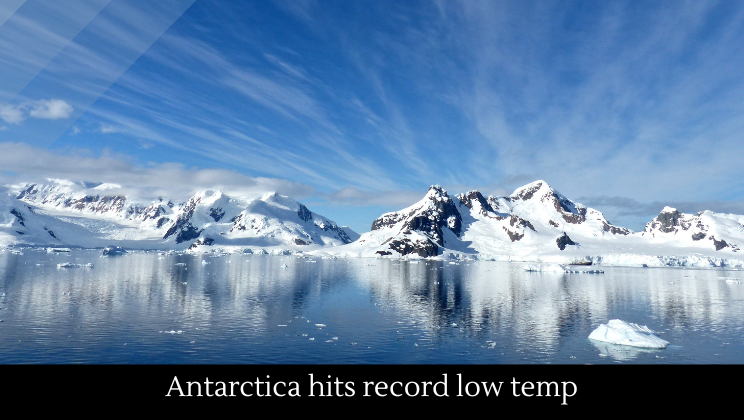
Antarctica has hit a record low temperature.
July is likely to be the hottest month ever recorded.
According to a new report by an international group of scientists, the recent heat wave would have been “impossible” without climate change.
More than 10,000 heat records have been broken in thee past month worldwide.
The Earth has seen temperature spikes like it hasn’t seen in 125,000 years this past month. The world is in uncharted territory as records continue to fall, and 2024 is expected to be even hotter.
Almost all major Italian cities are on red alert as the worldwide heatwave continues.
The US and China have both seen extreme heat as a worldwide heatwave continues. Europe is facing a massive heatwave. Sixteen Italian cities are on red alert as a heatwave sweeps Europe. Earlier this summer, Earth set a record for the hottest day ever four days in a row.
The CEO of Shell has warned against cutting oil production. He says this following July 3rd, the second hottest day ever recorded, and July 4th, the hottest day.
This June was the hottest ever recorded in the UK. Additionally, temperatures in the oceans around the UK and Ireland have spiked.
Flight turbulence is getting worse and worse as the planet heats up. And it looks like the next year will be particularly bad: scientists confirmed that El Niño has begun, which will likely make 2024 the world’s hottest year on record.
According to a top scientist, the world’s battle to stop melting glaciers and rising sea levels has been lost.
Air quality has gotten dangerously bad in parts of the Northeast following the Canadian wildfires, putting tens of millions of people at risk.
Atmospheric CO2 measured in Hawaii has reached new heights.
The increase in solar panels may lead to a waste problem. The los of black sea urchins is threatening the Gulf of Aqaba coral reef. In 2009, a group of scientists listed nine thresholds that, if crossed, would make earth inhabitable. We have crossed seven of them. The world is on the path to producing more solar power than oil power, according to recent data.
France is banning short-haul flights in order to curb emissions. Brazil has used more green power than at any other time in the past decade. Wind is the main source of power for the first time.
A drought has forced southern France to ban garden pools. Spain just experienced its hottest April day on record, with temperatures reaching between 10-15ºC above normal. Rapidly-rising ocean temps are threatening a more extreme El Nino.
The signs of melting ice in the Arctic and Greenland are now “unmistakable.”
The world is heading towards the worst rice shortage in 20 years.
A huge heatwave has disrupted life across Asia. Catalonia is in the midst of its worst drought in decades. This year is likely to see a fall—for the first time—in emissions-producing electricity-generation. India, already the world’s third-largest emitter, is adding coal plants at a near record pace to keep up with climate-driven electricity demands.
The Brazilian rainforest is still being torn down at an alarming rate. The world’s ocean surface temperatures have reached an all time high.
The Pacific Fishery Management Council has voted to recommend a complete ban on commercial and recreational fishing for Chinook salmon in parts of the West Coast in 2023, due to a record-low number of the fish returning to the Sacramento River to spawn. The ban would affect over 200 miles of the California and Oregon coasts, and may last multiple years. The final decision on the ban will be made by the National Marine Fisheries Service in April.
Ice melting in Antarctica could slow deep water ocean currents for centuries, limiting the spread of nutrients to sea life.
In other climate news, the so-called Doomsday Glacier—a glacier that, were it to melt, could lead to catastrophic sea level rise, is at risk of collapse. Ice levels in the Arctic sea are at a record low.
Major corporations are failing to deliver on their promises to cut emissions. A new study suggests that up to 15 million people are threatened by climate-induced glacial melt. In a first-of-its-kind case, Shell’s board of directors is being personally sued over the company’s contributions to climate change. According to a recent study, 40% of animals and 34% of plants are at risk of extinction.
More news.
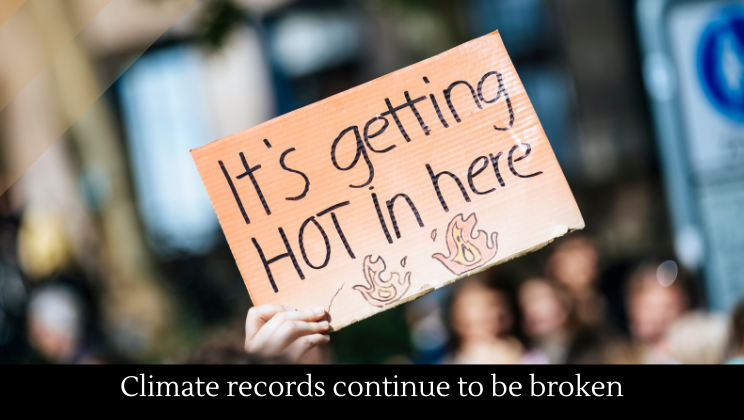
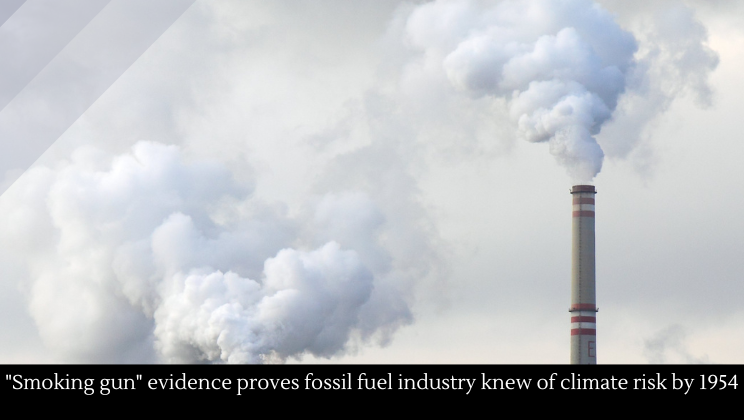

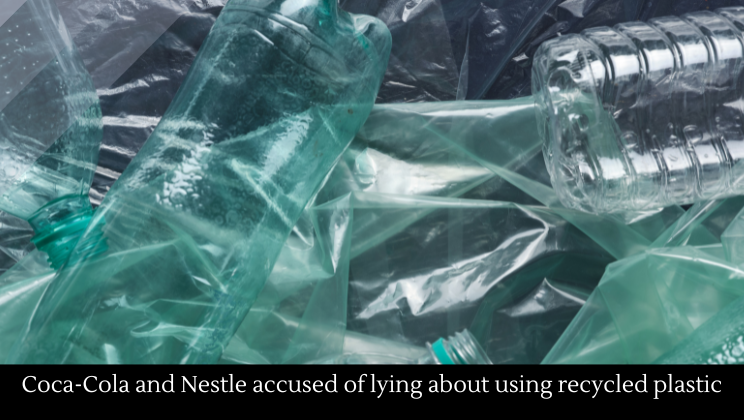






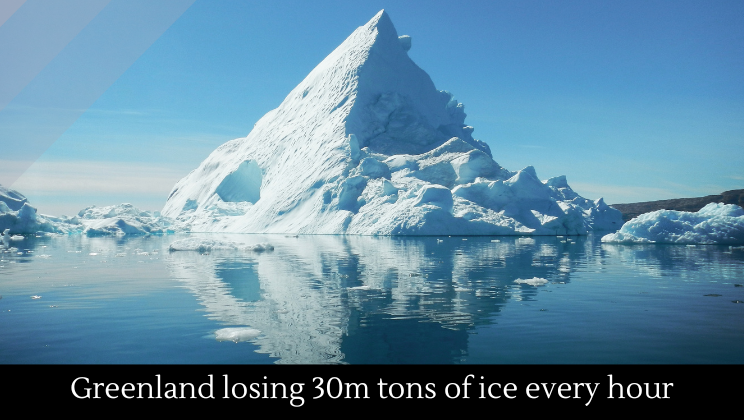
Thanks for the information about Antarctica hits record low temp